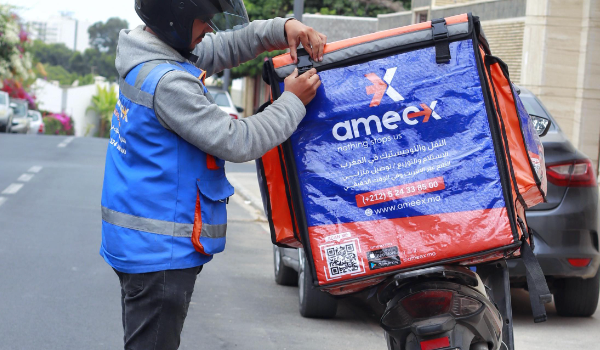Delivery companies in Morocco are at the forefront of a rapidly evolving logistics landscape, significantly influenced by the surge in e-commerce. As online shopping becomes increasingly popular, consumers are presented with a variety of options, making it essential to understand the best delivery services available. From established names like Amana to innovative delivery startups such as Yassir and Snooze, the Moroccan market is rich with choices for parcel delivery. Each of these companies offers unique strategies and strengths, tailored to meet the diverse needs of a growing customer base. This exploration of delivery companies in Morocco will delve into their offerings and how they navigate the competitive environment shaped by the rise of e-commerce delivery.
In recent years, logistics in Morocco have transformed dramatically, elevating the importance of efficient and reliable delivery services. As businesses pivot towards fulfilling online orders and enhancing customer experiences, the landscape is characterized by both traditional delivery firms and emerging players. Identifying the best delivery solutions requires an understanding of the various challenges and innovations shaping this sector. The interplay between established logistics providers and agile delivery startups is indicative of the dynamic nature of the industry, where speed and convenience are paramount. Hence, as we explore this vibrant market, we will uncover the varying dynamics and operational strategies of different delivery services operating in Morocco.
The Rise of Delivery Companies in Morocco
As Morocco’s economy experiences rapid digital transformation, the logistics sector, particularly delivery companies, is witnessing significant growth. The rise of e-commerce has catalyzed this change, leading to a surge in demand for reliable delivery services. Key players such as Amana and Groupe M6 have adapted to this trend by enhancing their service offerings to meet evolving consumer demands. In addition, newer delivery startups like Snooze and Koush have entered the market, leveraging technology to provide innovative solutions that resonate with the younger demographic.
Moreover, the evolving logistics landscape in Morocco showcases how delivery companies are not just providers of transportation but are also integral parts of the e-commerce ecosystem. With the increasing reliance on online shopping, businesses are now forging partnerships with delivery firms to streamline their operations and improve customer satisfaction. This shift underscores the critical role that efficient logistics and delivery services play in supporting Morocco’s burgeoning digital economy.
Best Delivery Services in Morocco: A Comparative Analysis
In assessing the best delivery services in Morocco, one must consider various factors that influence consumer preferences. Established players like Amana offer extensive nationwide coverage, catering to those who prioritize reliability, especially in rural areas. In contrast, companies like Yassir and Snooze focus on fast service and urban efficiency, boasting features like smartphone tracking and one-hour delivery windows that cater to the fast-paced lifestyles of city dwellers.
Furthermore, the competitive landscape is increasingly characterized by how well services are tailored to specific market segments. While Amana’s strengths lie in its traditional approach and trusted infrastructure, startups like Koush are gaining traction with eco-friendly delivery methods, appealing to environmentally conscious consumers. This variety provides customers the flexibility to choose delivery services that best suit their needs, be it for e-commerce or everyday parcel deliveries.
The Future of E-commerce Delivery in Morocco
The future of e-commerce delivery in Morocco is promising, driven by technological advancements and growing consumer expectations. As more consumers shift online for shopping, delivery companies are investing heavily in digital tools to enhance the user experience. Innovations such as AI-driven logistics, automated tracking systems, and smart routing solutions are becoming standard practices to ensure timely and efficient deliveries.
Additionally, with the continuous rise in online transactions, collaborative relationships between e-commerce platforms and delivery services are likely to strengthen. This cooperation is crucial for managing logistics effectively while ensuring customer satisfaction is maintained. As the landscape evolves, it is clear that delivery companies in Morocco will need to remain agile and responsive to the ongoing changes in consumer behavior and emerging market demands.
Frequently Asked Questions
What are the best delivery services available in Morocco for e-commerce?
In Morocco, several delivery companies stand out for their excellent e-commerce delivery services. Amana is known for its extensive network and reliability. Groupe M6 offers efficient same-day delivery in major cities, while startups like Yassir and Snooze specialize in quick, last-mile services tailored for online retailers. Depending on your needs, these best delivery services in Morocco cater to various logistics requirements.
How do logistics in Morocco support parcel delivery by emerging startups?
Logistics in Morocco are rapidly adapting to support parcel delivery, particularly through emerging startups like Koush and Snooze. These companies leverage technology and innovative solutions for efficient urban delivery, focusing on last-mile logistics to tackle the complexities of e-commerce demands. Their strategies align with the growing expectations of consumers for faster and more reliable logistics options.
What challenges do delivery companies in Morocco face in the current market?
Delivery companies in Morocco face several challenges, including increasing competition from tech-savvy startups, the need for digital transformation, and regulatory hurdles. Established players like Amana must innovate to retain customers, while newer entrants often struggle with scaling their operations amidst rising expectations for speed and reliability in the evolving e-commerce landscape.



